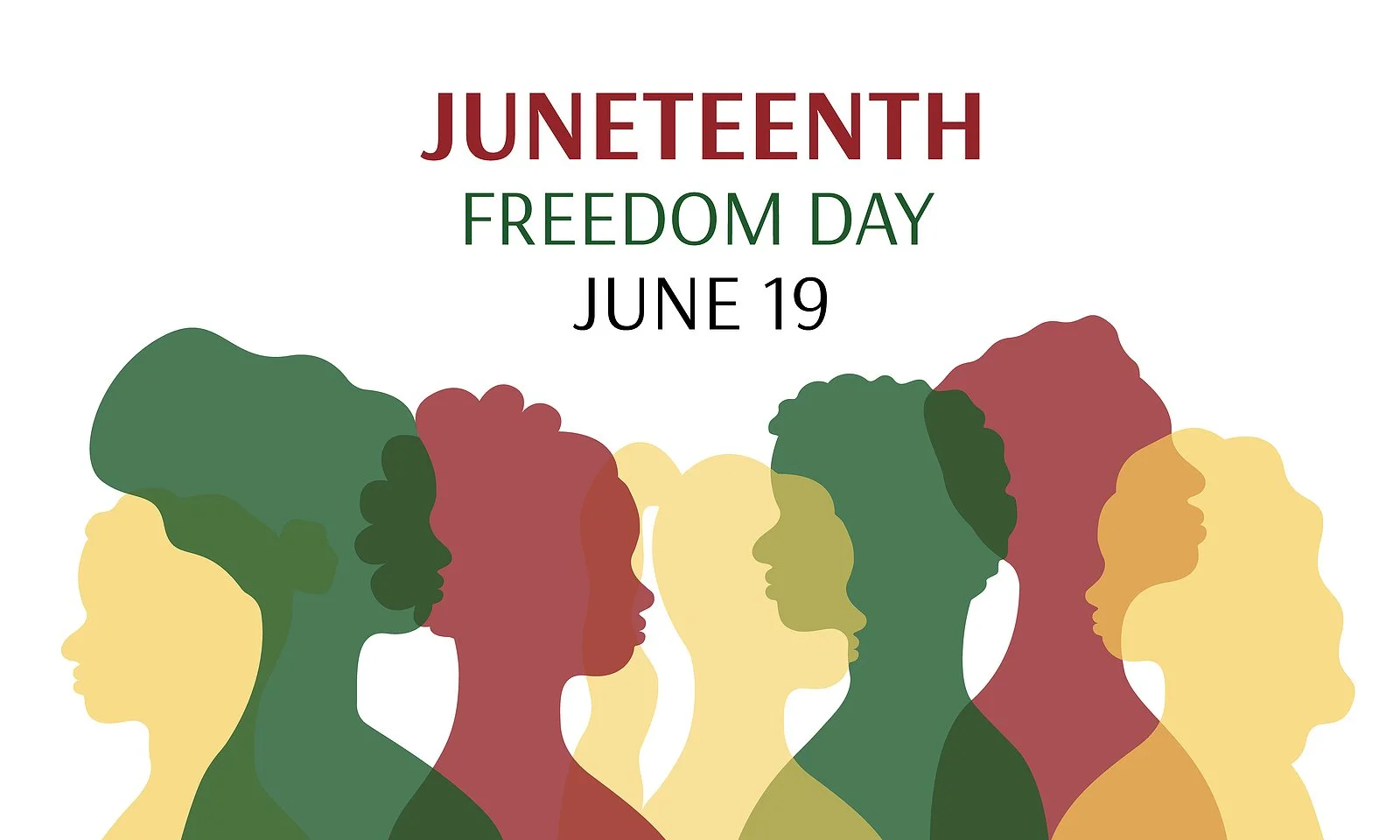Freedom Day - Juneteenth
by Lisa Gray (reposted from June 19, 2022)
It is absolutely clear that God has called you to a free life. Just make sure that you don’t use this freedom as an excuse to do whatever you want to do and destroy your freedom. Rather, use your freedom to serve one another in love; that’s how freedom grows. For everything we know about God’s Word is summed up in a single sentence: Love others as you love yourself. That’s an act of true freedom. If you bite and ravage each other, watch out—in no time at all you will be annihilating each other, and where will your precious freedom be then? (Galatians 5: 13-15, MSG).
Juneteenth is an annual celebration of freedom which commemorates June 19, 1865, the date enslaved African Americans throughout Texas were finally liberated from the bondage of slavery. The Emancipation Proclamation, which was effective January 1, 1863, was finally enforced when Union soldiers arrived in Galveston, Texas. The people heard what was entitled General Order No. 3 which began: "The people of Texas are informed that in accordance with a Proclamation from the Executive of the United States, all slaves are free….” Additional names for Juneteenth are Emancipation Day, Freedom Day, Jubilee Day, Black Independence Day, and Juneteenth Independence Day. It is said to be the oldest national commemoration of the ending of slavery in the U.S.[1]
The joyous celebrations that followed the news of freedom began a tradition that has lasted for over 155 years, in cities across the U.S. Historical accounts of June 19, 1865, reveal that the freed men and women immediately began to celebrate with prayer, feasting, song, and dance after receiving the good news of their liberty. One year after being liberated, they began the first official Juneteenth celebrations in Galveston. These commemorations included prayer meetings and singing spirituals. Many celebrants also wore new clothes as a way of representing their newfound liberty.[2] These observances reminded them of the blessings of freedom, and strengthened them for the fight ahead, as they sought the rights of citizenship they had long been denied. Juneteenth celebrations help us remember what can happen if we take our freedoms for granted and fail to teach future generations about the sin and horrors of chattel slavery. Likewise, if we as a community of faith fail teach the value of every person as fearfully and wonderfully made by God, we are destined to repeat the sins of our past and become entangled in the personal bondage that comes with it.
The newly free had to work at maintaining hope while living in a world where many denied their humanity. Freedom was not fully achieved when the restrictions had been removed from their bodies. They had to struggle to heal their minds and spirits from the daily terror that was slavery. According to Angela Tate: “Juneteenth is a time to reflect. What does it mean to really celebrate our freedom? What does it mean to be free in moments where freedom is conditional, and freedom is always a challenge? Juneteenth is a moment to think about freedom being conditional freedom and it is something that we must continuously strive and fight for.”[3] The newly free had to learn what self-determination meant and how to fight those who would return them to servitude. Juneteenth commemorations help us reflect upon and engage in the continual fight of African Americans, and many others, to achieve and maintain the full rights of U.S. citizenship.
Our freedoms cannot be taken for granted. The Apostle Paul warned the young church in Galatia to fight for their salvation through Jesus and the freedom that came with it. He cautioned them to push back against those who would bind them to Jewish religious traditions as a prerequisite to membership in the early church. Paul wrote: “Christ has set us free to live a free life. So take your stand! Never again let anyone put a harness of slavery on you.”[4] Paul was essentially urging the Galatians to ignore the disinformation campaign being waged by some in the community known as Judaizers. They were teaching that the men needed to be circumcised, in accordance with Jewish religious custom, to be a part of the early Christian church.[5] Paul taught that submitting to circumcision meant surrender to the bondage of the Law, thereby relinquishing the freedom of salvation through belief in Christ alone.
Modern Juneteenth celebrations often reflect what the Apostle Paul wrote to the Galatians about using their freedom to serve one another, in love, as the way that freedom grows. Community Juneteenth celebrations often include barbecues, parades, job fairs, voter registration drives, small business markets, health screenings, and the provision of free groceries to all who need them. These are acts of love that spread freedom. Tending to the needs of those in the community helps free people from the oppression created by illness, joblessness, hopelessness, and hunger. Paul taught that loving others as we love ourselves is freeing for both the giver and the receiver of that love.
The battle for maintaining our freedoms, whether as citizens or Christians, is a collective struggle rather than a singular pursuit of individuals. Paul warned the Galatians that fighting with one another could destroy freedom for all in the community. This is a timely reminder for us as communities join together to commemorate Juneteenth and re-energize one another to continue the struggle to achieve the promise of freedom not yet completely fulfilled. We come together in worship and learning in our churches and homes to strengthen one another’s faith, to help one another continue to fight for the freedom that comes with being sinners saved by grace.
As we celebrate Juneteenth, I pray that we remember to serve one another, in love, preserving and growing our precious freedom, using our faith as fuel for battles ahead.
Lisa Gray is a lawyer and minister and has a passion for serving women who were formerly incarcerated. She also serves as a member of our NWN Advisory Board.
[1] Source: https://www.juneteenth.com/; accessed June 15, 2022.
[2] Source: https://www.britannica.com/topic/Juneteenth; accessed June 15, 2022.
[3] Source: What is Juneteenth? | National Museum of African American History and Culture (si.edu); accessed June 15, 2022. Ms. Tate is Curator of African American Women's History at the National Museum of African American History and Culture in Washington, DC.
[4] Galatians 5:1, MSG.
[5] The Judaizers alleged that a person needed to be circumcised in addition to their faith in Christ, which resulted in, many of the Galatians getting circumcised. The Apostle Paul vehemently rebuked this teaching because it fabricated a false gospel. Source: Why Were Judaizers Such Big Problems in the Early Church? - (christianity.com); accessed June 15, 2022.

